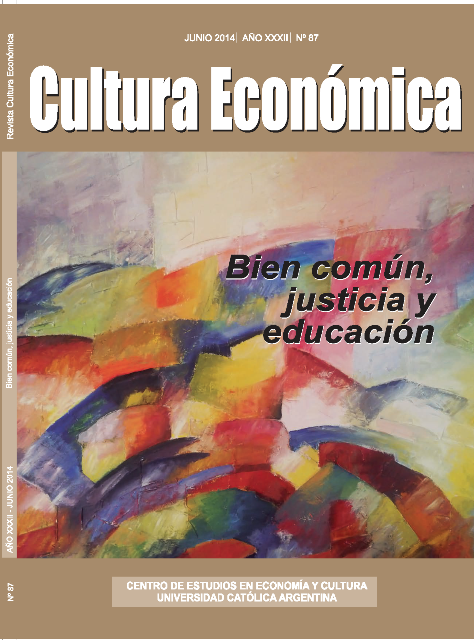Felicidad pública y civilidad en el análisis de Juan Hipólito Vieytes sobre el desarrollo económico del Virreinato del río de la Plata
Palabras clave:
CIVILIDAD, ECONOMÍA CIVIL, JUAN HIPÓLITO VIEYTESResumen
El autor ofrece una relectura de las obras de Juan Hipólito Vieytes a partir de los conceptos de la economía civil italiana. Más allá de la innegable influencia de Adam Smith en el pensamiento económico y social de Vieytes, Perpere Viñuales sostiene que existe también una profunda influencia de esta corriente de pensamiento. Ciertamente, la noción de felicidad pública como fin último de la economía y el concepto de incivilmento como el medio para alcanzar el crecimiento económico y social para toda la sociedad, son claves en toda su obra destinada a promover el desarrollo de sus compatriotas.
Descargas
Citas
Gondra L. R. (1927). Las ideas económicas de Manuel Belgrano. Imprenta de la Universidad de Buenos Aires, Buenos Aires.
Gutiérrez, J.M. (1860). Apuntes biográficos de escritores, oradores y hombres de estado de la República Argentina, tomo VII. Imprenta de Mayo, Buenos Aires.
Martínez, P. (2009). “El pensamiento agrario ilustrado en el Río de la Plata: un estudio del Semanario de Agricultura, Industria y Comercio (1802-1807)”. En Mundo Agrario, v. 9, N° 18.
Redactor de la Asamblea (1813). Imprenta del Estado, Buenos Aires.
Rodríguez Braun, C. (1997) “Early Smithian Economics in the Spanish Empire: J. H. Vieytes and Colonial Policy” en The European Journal of the History of Economic Thought, 4: 3, Autumn, pp. 444-454.
Rojas, R. M. (2010). El pensamiento económico de Juan Hipólito Vieytes, Fundación San Antonio, Buenos Aires.
Smith, A. (1776). The Wealth of Nations. Oxford University Press, Oxford.
Vieytes, J. (1802). Semanario de Agricultura, Industria y Comercio. Junta de Historia Numismática Americana, Buenos Aires.
Weinberg, F. (1956). Estudio Preliminar a los Antecedentes económicos de la Revolución de Mayo. Raigal, Buenos Aires.
Zamagni, S; Bruni, L. (2007). Economía civi. Bononiae - Prometeo, Buenos Aires.
Descargas
Publicado
Cómo citar
Número
Sección
Licencia













